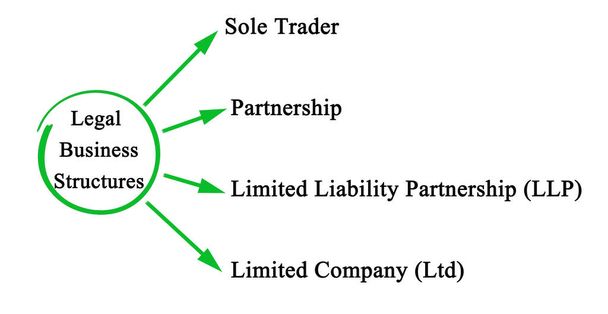Understanding the Limited Company (Ltd)
A Limited Company (Ltd) is a type of business structure commonly utilized by entrepreneurs and businesses. This legal structure has certain benefits. It gives its shareholders limited liability. This means they are not personally responsible for the business’s debts. There is also a clear division between personal assets and those of the business.

What is a Limited Company?
A Limited Company (Ltd) is a legal entity that exists separately from its owners (shareholders). It is owned by shareholders and managed by directors. The term “Limited” implies that the liability of shareholders is limited to the amount they have invested in the company, protecting personal assets from business debts.
Types of Limited Companies
There are two main types of limited companies: private limited companies (Ltd) and public limited companies (PLC). Private limited companies are the most common and are typically smaller businesses with limited numbers of shareholders. Public limited companies, on the other hand, are larger and can offer shares to the general public through stock exchanges.

Key Features of Limited Companies
- Limited Liability: Shareholders have no personal responsibility for the debts of the company. They are only liable up to the amount they invested in the company.
- Separate Legal Entity: A Limited Company is a separate legal entity, distinct from its owners. This allows the company to sign contracts, hold assets, and take on debts independently, using its own name.
- Perpetual Succession: The company remains operational despite any changes in ownership or membership. It is unaffected by the death of an owner or when shares are transferred.
- Ownership Structure: Shares represent ownership. Shareholders get voting rights that match the size of their shareholding.
- Regulatory Compliance: Limited Companies must comply with regulations. These rules help make their operations transparent and accountable.
Advantages of Operating as a Limited Company
1. Limited Liability
The primary advantage of a Limited Company is the protection of personal assets. Shareholders are not personally responsible for the company’s debts, reducing the risk associated with business operations.
2. Access to Capital
Limited Companies can raise money by selling shares. This helps the business grow by bringing in money from investors.
3. Tax Efficiency
Limited Companies can enjoy better tax advantages than other business structures. They often have lower corporate tax rates. They also can plan their taxes more wisely, including keeping profits inside the company.
4. Professional Image
Operating as a Limited Company can enhance the credibility and professional image of a business. Suppliers, clients, and partners may view a Limited Company as more stable and established.
Formation of a Limited Company
To form a Limited Company, you need to follow several steps. These steps make sure you meet all legal requirements. They also help set up a strong base for your company.
1. Choose a Name
The first step is to pick a suitable and unique name for the Limited Company. The name must follow the legal rules of the area. It should not be the same as or too close to the names of existing companies.
2. Register the Company
The next step involves registering the company. You do this by submitting important documents to the proper authorities. These documents include the company’s articles of association and memorandum of association. Usually, you submit these to the Companies House or a similar regulatory body that governs your area.
3. Define the Company Structure
Clearly outline the company’s structure, specifying the number and type of shares, as well as the rights and responsibilities of shareholders. This information is often detailed in the articles of association.
4. Appoint Directors and Shareholders
Identify and appoint individuals to serve as directors and shareholders of the company. Directors are responsible for managing the company, while shareholders own the business.
5. Issue Shares
Issue shares to the initial shareholders. Shares should be distributed according to the ownership structure everyone agreed on.
6. Obtain Necessary Licenses and Permits
Certain businesses need specific licenses and permits. To avoid future issues, make sure you comply with all legal and regulatory rules.
Tables for Clarity
Let’s examine two tables. The first table highlights the advantages of Limited Companies. The second table describes the steps needed to form a Limited Company.
Table 1: Advantages of Limited Companies
| Advantages | Description |
|---|---|
| Limited Liability | Shareholders are not personally liable for the company’s debts. |
| Access to Capital | Limited Companies can raise funds by issuing shares, facilitating business expansion. |
| Tax Efficiency | Potential for favorable tax treatment, including lower corporate tax rates and tax planning opportunities. |
| Professional Image | Enhanced credibility and professionalism in the eyes of suppliers, clients, and partners. |
Table 2: Steps for Formation of a Limited Company
| Steps | Description |
|---|---|
| Choose a Name | Select a unique and compliant name for the company. |
| Register the Company | Submit necessary documents to the relevant regulatory body for official registration. |
| Define the Company Structure | Clearly outline the structure, specifying the number and type of shares, and rights of shareholders. |
| Appoint Directors and Shareholders | Identify and appoint individuals to serve as directors and shareholders. |
| Issue Shares | Allocate and issue shares to initial shareholders based on the agreed ownership structure. |
| Obtain Necessary Licenses and Permits | Ensure compliance with legal and regulatory requirements by obtaining relevant licenses and permits. |
Differences between Limited Companies and Other Business Structures
It is important to understand the differences between limited companies and other business structures. This will help you when you are deciding which option to choose for your business.
Sole Proprietorship vs. Limited Company
A sole proprietorship means the business and the owner are legally the same. The owner is personally responsible for all debts. They don’t have limited liability protection. Meanwhile, a limited company is a separate legal entity. It gives the owner limited liability protection and possible tax benefits. But, it requires more paperwork and costs more to set up.
Partnership vs. Limited Company
A partnership is when two or more people own and run a business together. Partners share responsibility. In a general partnership, each partner has unlimited personal liability for business debts, similar to a sole proprietorship. However, in Limited Liability Partnerships (LLPs), partners have some protection from liability. This is unlike limited companies, which provide full legal separation between the business and personal assets, as well as limited liability.
Conclusion
Individuals thinking about a Limited Company should learn about it in detail. This includes knowing the benefits, how to set it up, and what limited liability means. Being informed helps entrepreneurs make smart choices and handle the challenges of running a business. For advice tailored to your situation, it’s best to speak with legal and financial experts.
Frequently Asked Questions (FAQs) Understanding the Limited Company (Ltd)
1. What is a Limited Company (Ltd)?
A Limited Company (Ltd) is a company created by law in a certain area. It has limited liability, so shareholders only risk the money they put into the business. This type of company is chosen often because it is its own legal entity and offers several benefits.
2. What are the Key Features of Limited Companies?
Limited Companies have key characteristics. They have limited liability, which means owners are not personally responsible for business debts. They are separate legal entities, legally distinct from their owners. They enjoy perpetual succession; the company continues even if owners change. Ownership is divided into shares. They must follow strict regulations. All these traits make Limited Companies an attractive business structure.
3. Why is Limited Liability Important?
Limited liability shields shareholders’ personal assets. If the business struggles or incurs debts, shareholders are only responsible up to the amount they invested. This adds a safety net for their personal assets.
4. How is a Limited Company Structured?
A Limited Company has shareholders who own the company through shares. It also has directors who run the company. The company’s rules are written in two key documents: the articles of association and the memorandum of association.
5. What are the Advantages of Operating as a Limited Company?
There are several benefits to an Ltd structure. Owners have limited liability, meaning they are not personally responsible for the company’s debts. Companies can raise money by issuing shares. This structure can also be more tax-efficient. Additionally, it gives off a professional image. These features make Ltd attractive to business owners who want financial safety and chances to expand.
6. How is a Limited Company Formed?
To form a Limited Company, you must follow several steps. First, choose a name that no other company uses. Then, register your company with the government. Decide how your company will be organized. Appoint people who will direct the company and those who will own shares. Issue shares to the shareholders. Finally, get any licenses and permits you need.
7. Can I Change the Name of a Limited Company?
You can change the name of a Limited Company. This process has legal steps. It must follow the rules of the area where the company is. Getting professional advice is recommended while changing the name.
8. Are Limited Companies Subject to Taxation?
9. What Happens if a Director or Shareholder Leaves or Passes Away?
A Limited Company continues to exist even if a director or shareholder leaves or dies. Shares can be passed on or inherited. The company keeps running with the members who are still there.
10. How Long Does it Take to Form a Limited Company?
The time it takes to set up a Limited Company differs from place to place. This is because each jurisdiction has its own rules and how fast it processes things. Sometimes, you may have to wait from a few days to several weeks. To avoid delays, you should begin forming your company early. Do this well before the date you want to start running your business or when you need to meet certain deadlines.
References:
- GoForma. (n.d.). What is a Limited Company? Retrieved from https://www.goforma.com/limited-company/what-is-a-limited-company#
- Investopedia. (n.d.). Limited (Ltd). Retrieved from https://www.investopedia.com/terms/l/ltd-limited.asp
- Quality Company Formations. (n.d.). About Limited Companies. Retrieved from https://www.qualitycompanyformations.co.uk/about-limited-companies/









